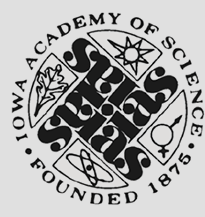Home > Iowa Academy of Science > Journals & Newsletters > Iowa Science Teachers Journal > Volume 17 > Number 2 (1980)
Document Type
Article
Abstract
Research has been carried out to determine which characteristics and abilities are the best predictors of success in a college level chemistry course. Much of the work has centered on achievement measures such as high school chemistry performance, SAT or ACT scores, and the like. Factors other than demonstrated aptitude and ability are also important to success. Some research has looked at the effect of cognitive styles and motivational factors in attempting to predict success. Recent studies in our department indicate that most students who do not perform well may be thought of as suffering from an educational handicap, where handicap is taken to mean any disadvantage that renders achievement or success in competition more difficult. Two different types of educational handicaps may be identified: proficiency handicaps and attitudinal handicaps. A proficiency handicap is defined as the inability of a student to perform a requisite skill. Attitudinal handicap is a general term that refers to a handicap which is not proficiency-related.
Publication Date
September 1980
Journal Title
Iowa Science Teachers Journal
Volume
17
Issue
2
First Page
2
Last Page
6
Copyright
© Copyright 1980 by the Iowa Academy of Science
Language
en
File Format
application/pdf
Recommended Citation
Douglass, Charles Jr.
(1980)
"Educational Handicaps in Chemistry Students,"
Iowa Science Teachers Journal: Vol. 17:
No.
2, Article 2.
Available at:
https://scholarworks.uni.edu/istj/vol17/iss2/2

